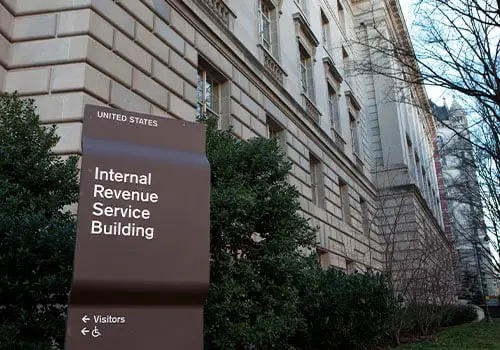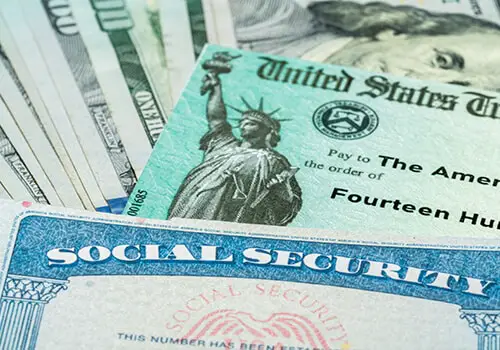You probably already know many people qualify for Medicare Part A at no cost, so where does the money come from? Medicare receives funding primarily through taxes collected from your paycheck, although there are a few other ways Medicare gets money.
Knowing how Medicare and each part of it are funded can help you understand the overall Medicare system and how it can work for you. Let’s dive into the details of Medicare funding and how it affects you and your financial situation.
How Is Medicare Funded?
Medicare is a federal program managed by the Centers for Medicare & Medicaid Services (CMS). The program’s funds come from several different sources, the primary being FICA payroll taxes. These taxes are in addition to the 6.2% Social Security tax or OASDI tax that is withheld from your paycheck. So, in a nutshell, Medicare is funded by taxpayers.
- The Medicare tax rate in 2024 is 1.45%. Unlike the Social Security tax, there is no income cap for collecting the Medicare tax. You will pay this tax on every dollar that you earn.
- In addition, your employer also pays 1.45% of your income as their portion of the tax.
The money collected from these taxes goes into two trust funds: the Medicare Hospital Insurance Trust Fund and the Supplemental Medical Insurance Trust Fund. In addition to these trust funds, Medicare also receives additional funding from a few other sources. Let’s dive into each part for a deeper look.
Medicare Part A
Part A, or Original Medicare, is your traditional hospital insurance. It covers inpatient hospital care, hospice care, some home health care, and short-term care in skilled nursing facilities. Part A is funded through your FICA payroll taxes – specifically, the money that goes into the Hospital Insurance Trust Fund.
In addition to these tax dollars, Part A collects premiums from individuals who do not have enough work history to qualify for premium-free health insurance. Finally, interest earned on the Medicare Trust Funds also helps pay for the costs of Part A.
Medicare Part B
Part B is similar to traditional health insurance, which pays for doctor visits and outpatient care. It also covers preventive care like vaccines and routine screening. Part B is funded through money put into the Medicare Medical Insurance Trust Fund. In addition, it receives dollars from premium payments.
Since Part B is not free, it is funded partially through premiums paid by the insured. These dollars and interest on the trust funds help pay for Medicare Part B. In some cases, Congress may even authorize special funds for Part B funding.
Medicare Part C
Part C is just a combination of Parts A and B. You may hear this referred to as a Medicare Advantage Plan. These plans are administered by private insurance companies that contract with Medicare. Enrollees may pay a premium to enroll in this private coverage, which is how Part C is funded.
Medicare Part D
This part of Medicare is essentially prescription drug coverage. Like Part B, enrollment in Part D is not free. Americans must pay a premium if they choose to enroll in this coverage. Part D is funded by the Supplemental Medical Insurance Trust Fund, plus premiums paid by the participants.
KEY TAKEAWAYS
- Medicare is primarily funded through a federal income tax withheld from your earnings, plus a matching portion your employer pays.
- Medicare is divided into several parts, each receiving funding from a slightly different source. Parts B and D get funding from premiums, copays, deductibles, and other sources.
- Money collected for Medicare goes into two trust funds: Medicare Hospital Insurance Trust Fund (HI) and Supplemental Medical Insurance Trust Fund (SMI).
Is Medicare Funded By State Or Federal?

Many people wonder whether Medicare is a state or federal program. You, the taxpayer, fund Medicare. It is a Federal program administered by the Federal government. There is little to no state involvement with the Medicare program. Medicare provides health care coverage for retirees and disabled persons who can qualify. Social Security and Medicare are two of the most significant items in the federal budget.
The primary source of funding for Medicare is through FICA payroll tax deductions. Each worker in America pays 1.45% of their gross pay into trust funds that provide funding for Medicare. In addition, your employer also pays a 1.45% tax into the fund. These tax dollars are not the only source of funding for Medicare.
Medicare also receives interest from the HI and SMI trust funds and payments directly from Medicare beneficiaries through monthly premiums, deductibles, and coinsurance payments. A portion of the income tax on your Social Security benefits also goes toward funding Medicare.
Must read articles related to Medicare
- What is a Medicare flex card for seniors & how does it work?
- Will Medigap insurance reduce my out-of-pocket expenses?
- What is the difference between Medigap and Medicare Advantage plans?
- Medicare for Dummies: A quick overview of Medicare.
- Overview of what is covered under Medicare.
What Is The “Medicare Tax”?

The so-called “Medicare Tax” is part of the tax collected by the Federal Insurance Contributions Act, or FICA tax. This tax requires 1.45% of your income to be withheld from your gross pay. Your employer must also pay a 1.45% tax on your gross pay. These taxes are placed into the SMI and HI trust funds to provide dollars for the Medicare health plans offered to those who qualify.
The Medicare tax is similar to the Social Security or OASDI tax. Unlike the OASDI tax, however, there is no cap on the Medicare tax. You will pay the tax on every dollar you earn with no income limit. Though the Social Security tax is capped at an income of $168,600, there is no limit on the Medicare tax. These taxes provide the general revenues for Medicare to operate.
TIP
Self-employed individuals need to account for the employee and employer portion of the Medicare tax. This means they will pay a base 2.9% Medicare tax plus any “additional Medicare tax” that might be owed.
How Does Medicare Work For Those Who Are Self-Employed?
Medicare insurance plans work the same for those who are self-employed. If you have enough work credits to qualify for Medicare, you will automatically enroll in Part A coverage at age 65.
There is one significant difference that self-employed individuals need to be aware of. Instead of paying the 1.45% FICA tax your employer also matches, you must pay the complete 2.9% Medicare tax. Your eligibility to enroll in the Medicare insurance program later in life will depend on whether you have contributed to the system during your working years.
The Bottom Line
Medicare funding is extremely important for providing coverage to individuals who rely on this insurance system, so it is helpful that you have a good understanding of where this funding comes from.
Medicare is a federally administered program funded primarily through taxpayer dollars. Some parts of Medicare require premium payment, which provides additional funding for the program.
Unfortunately, more people are relying on the system today than are paying into it, so the funding model may be forced to change in the coming years.
Frequently Asked Questions
The government provides very few subsidies for Medicare. The program is almost entirely funded through federal income taxes, employer payroll taxes, and premium payments.
However, with its current funding, the program may begin to run out of money in the next 5-10 years. The current funding model may be forced to change to keep the program running.
Today, the Medicare program is fully funded to cover its current costs and obligations through the year 2029 according to the Medicare trustees of the HI trust fund. The Chairman of the U.S. Treasury serves as the Chairman of these boards of trustees.
According to the trustees’ report, even when the fund is depleted, the payments into the fund will be enough to cover 89% of the hospital insurance costs. At that time, Medicare benefits might have to change to help cover rising health care costs. Additional beneficiary premiums or a higher FICA tax might be required.
You might be wondering who pays for Medicare. Medicare is funded by taxpayers. Your FICA taxes are the primary source of funding for Medicare. Total Medicare costs are covered by income tax, employer payroll tax, interest from Medicare trust funds, premium payments, and some government subsidies.
You and your employer both pay 1.45% of your income into the Medicare trust fund. If you are self-employed, then you’ll be required to cover the entire 2.9%. There is also no income cap on this tax, so you’ll pay it on every dollar you earn regardless of how much income you have.
This answer depends on a few different factors. First, it depends on which part of Medicare you refer to. For Medicare Part A, most people receive this at no cost. Assuming that you or your spouse have a sufficient number of work credits, then your Part A will be premium-free.
For Part B, your premium is determined by your income. Most people on Part B pay the standard premium of $175 per month. However, if your annual income is above $103,000, then you will be required to pay more. The higher your income, the more you pay up to a maximum of $594 per month. Parts C and D are administered by private companies who set their own premium amounts.
Some people also choose to purchase Medigap coverage which is also sold and administered by private companies. This is supplementary medical insurance that helps to cover some of your out of pocket expenses such as deductibles and coinsurance. You are under no requirement to purchase Medigap, but it does make financial sense for some individuals.
So, you’re wondering who is in charge of Medicare? The Centers for Medicare & Medicaid services (CMS) administer Medicare. Social Security, administered by the Social Security Administration, is the largest expense in the federal budget.
Medicare comes in at number two. The CMS is a federal agency responsible for administering Medicare and its associated programs. This same agency manages Medicaid at the federal level as well, although Medicaid is jointly managed with individual states. That is only one of the many differences between Medicare and Medicaid.
You can find a Social Security Administration office near you by using our SSA office locator and searching for your closest location.





